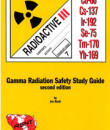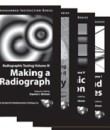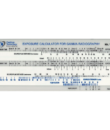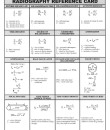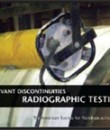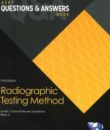What is Radiography Testing?
This method consists of a sensitive radiographic film being placed under a specific component i.e. a weld or casting, The Component is then exposed to ionizing radiation either X-Radiation or Gamma Radiation; this radiation will pass through the component and expose the film beneath it leading to what is known as the latent image on the film this image is not a permanent image and no noticeable change will be seen until development when it becomes a permanent fixed image. Discontinuities such as cracks or lack of fusion within the component can affect the exposure of the film. Most materials can be tested by Radiographic inspection, e.g. Ferritic and non-ferritic materials and both welds, castings and often composites are viewed too. Radiographic testing provides a permanent record and provides a high sensitivity of testing.
All personnel wishing to carry out Radiography should have a valid Basic Radiation Safety Certificate (please note this can be carried out as part of any level 2 RT course)
What are the responsibilities of an individual who is certified to Radiography Level 3?
An individual certified to Level 3 has demonstrated:
- The competence to evaluate and interpret results in terms of existing standards, codes, and specifications;
- Sufficient practical knowledge of applicable materials, fabrication, process, and product technology to select NDT methods, establish NDT techniques and assist in establishing acceptance criteria where none are otherwise available;
- A general familiarity with other NDT methods
Within the scope of the competence defined on the certificate, Level 3 personnel may be authorised to:
- Assume full responsibility for a test facility or examination centre and staff;
- Establish, review for editorial and technical correctness and validate NDT instructions and procedures;
- Interpret codes, standards, specifications and procedures;
- Designate the particular test methods, techniques and procedures to be used;
- Within the scope and limitations of any certification held, carry out all tasks at all levels;
- Provide guidance for NDT personnel at all Levels.
Level 3 certificated personnel may be authorised to carry out, manage and supervise PCN qualification examinations on behalf of the British Institute of NDT.
Where Level 3 duties require the individual to apply routine NDT by a method or methods within a particular product or industry sector, the British Institute of NDT strongly recommends that industry demand that this person should hold and maintain Level 2 certification in the applicable method(s) and sector(s).
The range and scope of PCN certification available at each level is defined in the relevant appendix to these general requirements.

